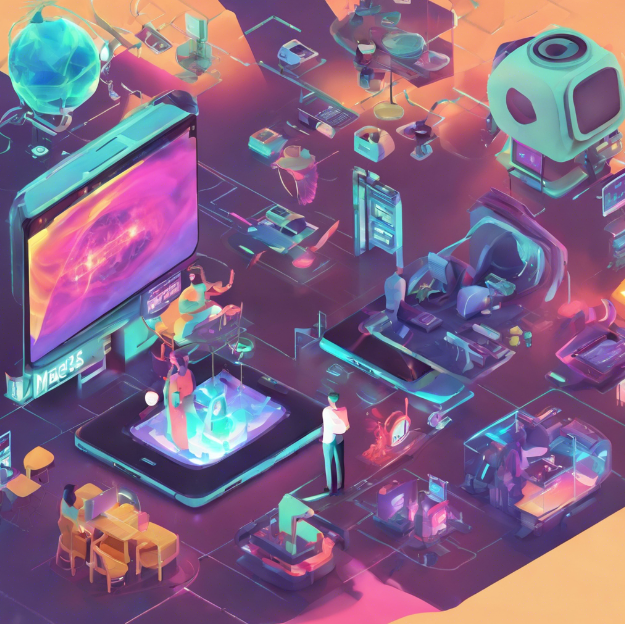Metaverse: The metaverse, a danger to society?
- Capucine Lemaire

- 2 jun 2023
- 2 Min. de lectura
Actualizado: 12 ago 2024
In my opinion, the concept of the metaverse represents a shared and collective virtual space
that aims to create a virtual physical reality. Indeed, it is seen by many in the technology sector as the successor to the Internet, combining augmented reality and virtual spaces. Its aim is to offer a more realistic experience of the digital world. Metaverse can be found in many sectors: travel, work, health, real estate, education, etc. This helps to strengthen social ties between people who live in different places, are of different ages and who would never have met if it hadn't been for the metaverse.
However, this new technology is still in its infancy, as the term metaverse has only been around for around thirty years. Although the idea is to create a functional economy and a collaborative, connected world, the evolution and use of metaverse over the next twenty years are still abstract.
So as far as potential dangers to individuals and society are concerned, it's still too early to
say. However, as long as the use of metaverse is not clearly defined, they could represent an economic danger. Cybersecurity issues also need to be taken into account, particularly with regard to network security and the confidentiality of activities carried out in these virtual worlds, given that the metaverse is based on elements such as NFTs, cryptocurrencies, and
blockchain.
To sum up, it is also important not to overlook another major limitation: human beings are
social animals and need the presence of other people and gatherings in the physical world.
While the metaverse can offer and expand access to certain activities such as live events, digital art, and avatars, it can never replace our fundamental desire for face-to-face interaction and connection. Ultimately, the metaverse does not replace people or physical
places but can be understood and should be used as a complement.

.png)





Comentarios